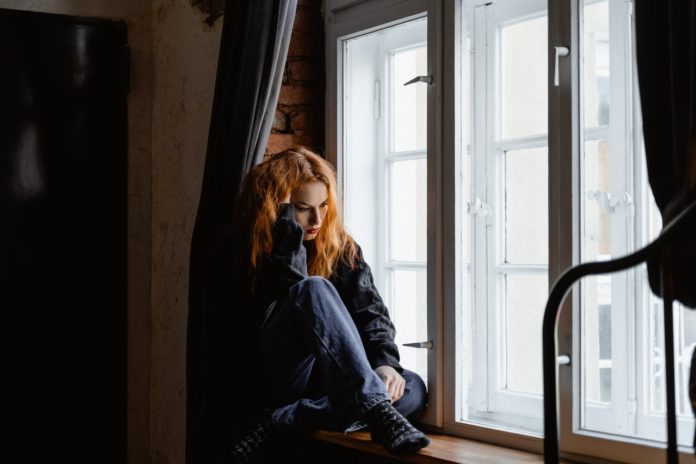Depression is not something to be taken lightly, especially when it affects the elderly. As people age, they may face various life situations that can leave them feeling overwhelmed and emotionally burdened.
In some cases, this emotional distress could develop into depression if left unaddressed or untreated. For this reason, it’s important to be aware of the different types of depression in older people and potential ways to combat them.
This blog post provides an overview of the major types of depression in seniors as well as possible treatments for each one so you can better understand how best to approach and manage them.
An Overview of Depression in Older Adults
Depression is a serious health concern that affects individuals of all ages and backgrounds. However, the risk of developing depression increases as one ages, particularly in individuals over the age of 65. In fact, it is estimated that up to 5% of older adults experience significant symptoms of depression.
Depression in older adults can be caused by numerous factors, including chronic health conditions, changes in social and family dynamics, and the loss of loved ones. It is important for loved ones and caregivers to be aware of the signs of depression in older adults so that they can receive proper support and treatment.
With compassion and understanding, we can help our older loved ones overcome the challenges of depression and enjoy their golden years with a positive outlook on life.
Major Types of Depression in Older People
Depression affects people of all ages, but it can be especially prevalent in older adults. As we age, various life changes such as retirement, health problems, and social isolation can take a toll on our mental health.
There are several different types of depression that older people may experience. Major depression is the most common type and is characterized by persistent feelings of sadness, hopelessness, and fatigue.
Persistent depressive disorder, or dysthymia, is a milder form of depression that lasts for at least two years. Bipolar disorder, which causes extreme shifts in mood and energy, can also occur in older adults. It’s important to recognize the signs of depression and seek treatment, as it can greatly impact our daily well-being and overall quality of life.
Major Depressive Disorder
Major depressive disorder is a mental illness that affects millions of people across the world. This disorder can cause intense feelings of sadness, hopelessness, and despair, which can significantly impact an individual’s quality of life.
It is not just a temporary feeling of sadness, but rather an ongoing and persistent condition that requires proper diagnosis and treatment. People who suffer from major depressive disorder may also experience changes in appetite and sleep patterns, as well as difficulty concentrating.
It’s essential to seek help if you’re experiencing any of these symptoms, as major depressive disorder can be treated effectively with therapy, medication, or a combination of both. Remember, mental health is just as important as physical health, and seeking help should be a priority if you’re dealing with this condition.
Persistent Depressive Disorder
Chronic depression that lasts for at least two years is referred to as persistent depressive disorder, also known as dysthymia. It is crippling and can have a considerable influence on a person’s everyday life, even if it is not as severe as major depression.
Symptoms of persistent depressive disorder can include low self-esteem, feelings of hopelessness, poor concentration, and changes in sleep and appetite. It’s important to seek help from a mental health professional if you suspect you may be experiencing persistent depressive disorder.
With the right treatment, it is possible to manage the symptoms and improve your quality of life.
Bipolar Disorder
Bipolar disorder, commonly referred to as manic-depressive disease, is a significant brain condition that can impair a person’s mood, level of activity, and capacity for daily living. Emotional highs, or manic periods, and emotional lows, or depressive episodes, are common in people with bipolar illness.
These mood swings can be intense, disruptive, and often life-altering. The exact cause of bipolar disorder is unknown, but it is believed to be a combination of genetic, environmental, and biological factors.
Despite the challenges it presents, individuals with bipolar disorder can lead successful and fulfilling lives with proper treatment and support.
Symptoms of Depression in Older People

As we age, our bodies and minds undergo numerous changes, and it’s important to be mindful of our mental health during this time. Depression is a common condition that can affect anyone, but older people are particularly at risk.
Symptoms of depression in older individuals can be difficult to detect, as they may be attributed to other age-related issues such as chronic pain or physical limitations. Some signs to look out for include excessive sadness or anxiety, changes in appetite or sleep patterns, and loss of interest in activities that were once enjoyed.
It’s crucial to seek help if you or a loved one is experiencing any of these symptoms, as depression can have serious consequences if left untreated. Remember, it’s never too late to prioritize your mental health.
Causes and Risk Factors for Depression in Older People
Depression is a common mental disorder that affects millions of people worldwide. Older adults are not immune to this condition, and in fact, they are at a higher risk of developing depression due to a combination of factors.
Some of the most common causes of depression in older people include loss of loved ones, chronic illness, and physical limitations. Additionally, social isolation and loneliness can also contribute to the development of depression. It is important to address these risk factors and provide older adults with the necessary support to prevent or manage depression.
As a society, we must work towards increasing awareness and understanding of this condition, so that older adults can receive the help they need to live healthy and fulfilling lives.
Possible Treatments for Depression in Older People

Depression is not limited to any age group, and elderly individuals are just as vulnerable to this mental disorder as anyone else. Finding the right treatment for depression in seniors can be challenging, with traditional medications having potential side effects that can complicate matters.
One medication that has proven successful in treating depression in older people is Cymbalta. This medication is known to work by balancing levels of serotonin and norepinephrine in the brain. The good news is, there are ways to get Cymbalta at a discounted price.
With a Cymbalta discount coupon, older adults can save on their medication costs and receive the treatment they need to help manage their depression. It’s essential to talk to a healthcare provider about all potential treatment options to find what works best for you or your loved one.
Medications

Finding affordable medication can be a daunting task, especially when you have a chronic condition that requires ongoing treatment. Fortunately, there are resources available to help alleviate the financial burden, such as discount coupons for prescription medications like Cymbalta.
These coupons can drastically reduce the cost of your medication, making it more accessible to those who need it most. With a Cymbalta discount coupon, you can potentially save hundreds of dollars each year on your prescription costs, allowing you to focus on your health and well-being without the added stress of financial strain.
Don’t let the cost of medication stand in the way of your health – explore your options and see if a discount coupon could be the solution for you.
Psychotherapy
Psychotherapy is an incredibly useful tool for those who are experiencing mental health challenges or simply seeking personal growth. Through a series of sessions with a trained therapist, individuals can gain a deeper understanding of their thoughts, emotions, and behaviors, and work towards making positive changes in their lives.
Psychotherapy encompasses a wide variety of approaches, from cognitive-behavioral therapy to psychodynamic therapy, and each approach is tailored to meet the unique needs of the client.
With the help of a skilled therapist, individuals can build coping skills, improve their relationships, and find a greater sense of fulfillment and wellbeing. Whether you’re dealing with anxiety, depression, trauma, or simply seeking personal growth, psychotherapy could be the key to unlocking your full potential.
Electroconvulsive Therapy (ECT)
Electroconvulsive Therapy, or ECT, is a form of treatment that is often associated with negative connotations. However, ECT has come a long way since its inception in the 1930s, and is now a safe and effective option for those who suffer from severe depression or other mental illness.
ECT uses electrical currents to briefly stimulate the brain and trigger a seizure, which can improve mood and decrease symptoms of mental illness. While it may sound intense, the procedure is performed under anesthesia and the patient is closely monitored throughout the treatment.
ECT may not be the first choice for treatment, but for those who have not found relief through medication or therapy, it can be a life-changing option.
Prevention Strategies for Depression in Older People

As we age, we often face a variety of challenges that can lead to feelings of loneliness, isolation, and despair. Depression is a common mental health issue among older people, but it doesn’t have to be an inevitable part of getting older.
By implementing prevention strategies early on, we can help seniors maintain their mental well-being and live a more fulfilling life. Exercise, socializing with loved ones, and participating in activities that bring joy and meaning are just a few examples of effective prevention strategies.
By making these habits a priority, we can help older adults stay mentally healthy and enjoy their golden years to the fullest.
Conclusion
Depression in older people can be rare, yet very serious. In this post, major types of depression in older people have been discussed, along with the signs and symptoms of depression in this age group.
The causes and risk factors may vary but all result in mental health issues that need to be addressed. There are various treatment options available such as medications, psychotherapy, or electroconvulsive therapy (ECT).
Prevention strategies like exercising regularly, reducing stress levels through lifestyle changes and building supportive social networks are beneficial for maintaining healthy emotional well-being.
Depression can be managed with diligence and support from family and friends. With the right type of treatment, those experiencing this disorder can lead more fulfilling lives.


